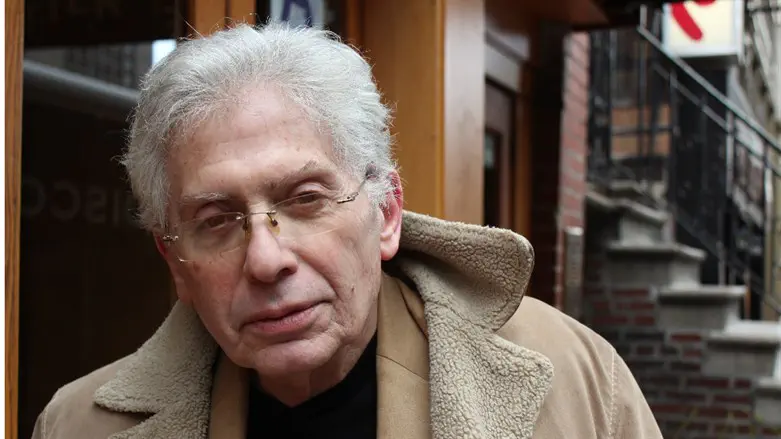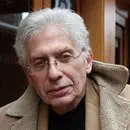
After 25 years of research, beloved British heiress Hannah Rothschild, author, filmmaker, philanthropist, uncovered enough material to set the record straight about her flamboyant great-aunt of years past, Pannonica (“Nica”) Rothschild, which led Hanna to write the book, “The Baroness: The Search for Nica, rebellious Rothschild and Jazz’s Secret Muse.”
Nica lifted the Jazz World and without her contribution the music may have died.
She was a niece of Walter Rothschild, to whom Lord Balfour handed the letter which viewed favorably a Jewish home in then Palestine.
Rap mogul Kanye West should get his hands on the book, which reveals Nica as the nurturer for a generation of mainly Black Jazz/bebop artists …Kanye’s predecessors of the 1940s, 1950s, and even beyond, when New York was snapping to the rhythms out of Harlem of such piano virtuosos as Thelonious Monk…thanks largely to a Rothschild gone slumming in the best possible way.
Reading Hannah’s book, Kanye might learn that his fame has origins, and springs from the generous spirit of a Jewish caregiver who used her wealth to support his hip-hop ancestors.
Perhaps then he’d take back his slur against the Jewish people, which continues to do damage after it was shared to his 31 million followers.
That’s asking too much, since hatred against Jews is demonic, but everybody, we trust, has a conscience.
Even therefore Candace Owens, once a bright light for conservatives, but who now finds no fault in Kanye.
She claims he is being misunderstood. She finds nuance in his words,” I’m a bit sleepy tonight but when I wake up I’m going Death Con 3 on the Jewish People.”
Scratch a rapper and this is what you get.
Perhaps Candace was having a bad hair day, because the message is clear enough and requires no interpreters.
We all speak the same language, but bebop artists back then spoke differently about Jewish benefactors.
The language was written and performed to the beat of gratitude.
Says Thelonious 111, who was close to Nica and his Jazz great father Monk, “Nica was an angel for Jazz. The Jazz musicians that she helped is too long to count. The testament to how important a human being she was to the Jazz Community is found in the fact that perhaps five or six of the greatest Jazz composers wrote compositions for her.”
As it turned out, more than 20 wrote compositions for her.
Before all that, she was fully European and entirely Rothschild, based in London… one branch of a vast Rothschild Empire.
The name Rothschild is synonymous with wealth, on the grandest scale, but the Rothschilds never forgot their duties to give and give generously as Jews.
As bankers, they supported kingdoms and democracies at a cost of billions…their guests were indeed kings and queens…but when Hitler came, they were not spared.
They too were fatally harmed and dispersed.
Jacob Rothschild, the fourth Baron and author Hannah’s father, remarked: “From generation to generation, we have to start all over again.”
World War Two underway, by then married with five children, Nica joined the fight. She served as a decoder, ambulance driver, and host for Free French Radio.
After that, there was nothing left but to be pampered and enjoy the life of a Rothschild princess.
Not for Nica, as Hannah tells it so masterfully and beautifully.
In London, someone played for her a recording of Thelonious Monk’s “Round Midnight” and Nica was hooked. Her life changed on the spot, and off she went to New York City to become Monk’s mentor. She devoted the rest of her life, nearly 30 years, to Monk and to his friends within the World of Jazz.
She was all in, and never looked back.
Leaving behind husband and children and cutting ties with her Rothschild family, is for others to judge.
Hannah, Nica’s biographer, tells it warts and all, also in a documentary available on YouTube.
In the Jazz World, Nica was a saint.
“She was the center of the Jazz scene,” remembers Monk’s son.
He remembers the Bentley that was always safe, on every street, because it belonged to the “Jazz Princess.”
The Bentley was available to anyone who needed a ride, often to the hospital after a drug overdose. There was that, surely.
Monk himself liked alcohol and “taking whatever else was around.” No such word about Nica, nor that she was anything besides a platonic mistress.
Her home in Weehawken, New Jersey and her residence in New York’s Stanhope Hotel served as headquarters for Black musicians who needed help or a place to stay.
She used a large part of her fortune paying off their debts, housing them, feeding them, and then always being there for comfort.
Like the rest of her family, she contributed mightily to Jewish organizations, and to the State of Israel.
(Shades of Peggy Guggenheim and the Arts Scene, though never throwing in her entire lot as did Nica for Jazz.)
Monk and all the rest of them idolized this free-spirited Rothschild gone slumming. They wrote music for her, with never a sour note.
That was then. This is now, isn’t it, Mr. Kanye.
New York-based bestselling American novelist Jack Engelhard writes regularly for Arutz Sheva.
He wrote the worldwide book-to-movie bestseller “Indecent Proposal,” the authoritative newsroom epic, “The Bathsheba Deadline,” followed by his coming-of-age classics, “The Girls of Cincinnati,” and, the Holocaust-to-Montreal memoir, “Escape from Mount Moriah.” For that and his 1960s epic “The Days of the Bitter End,” contemporaries have hailed him “The last Hemingway, a writer without peer, and the conscience of us all.” Website: www.jackengelhard.com

